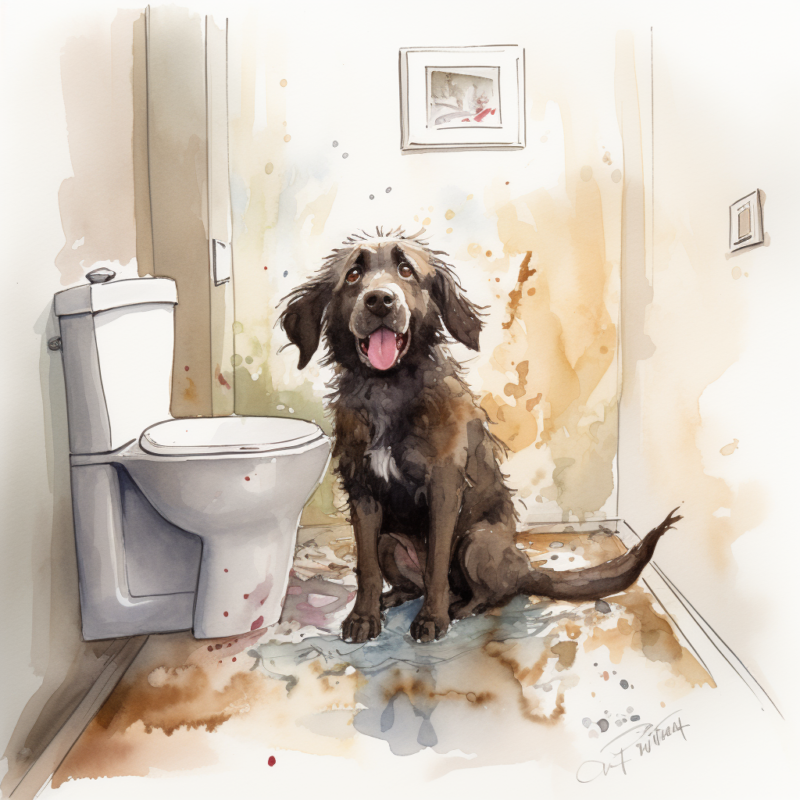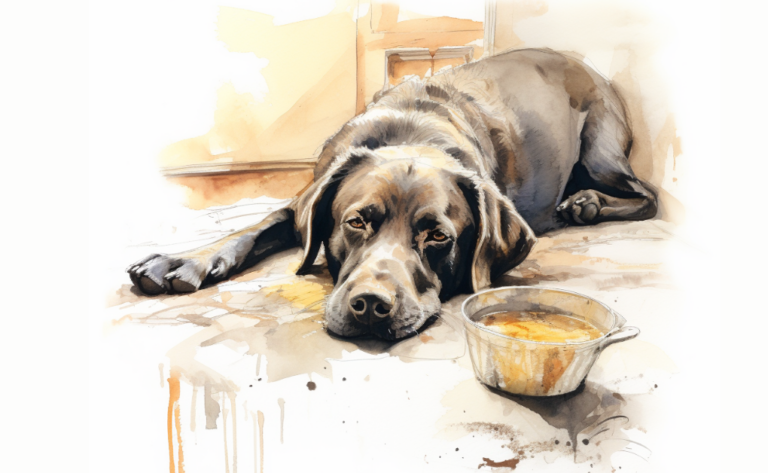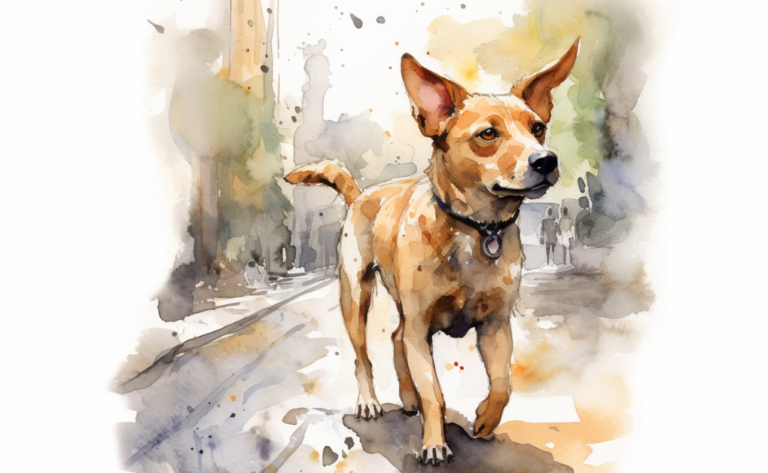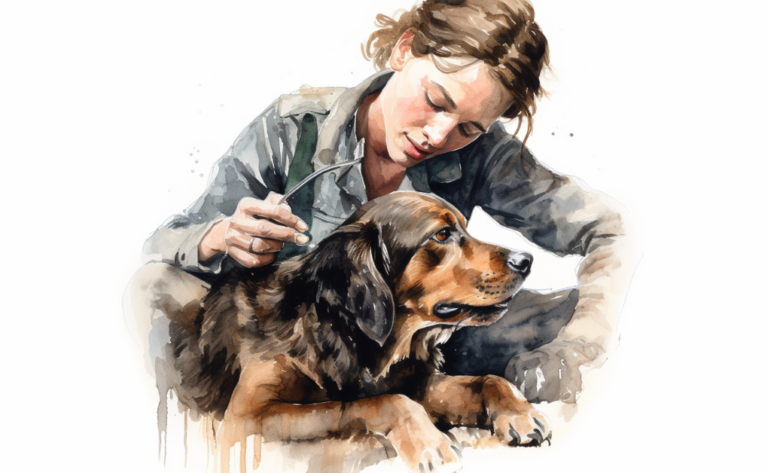What is Urinary Tract Disease in Dogs?
What is it?
How is it Treated?
Breed Predispositions
Miniature Schnauzers Bichon Frises Cocker Spaniels Lhasa Apsos Shih Tzus Dachshunds Miniature Poodles Yorkshire Terriers
Introduction
Jenny had always been attentive to her spirited Dachshund, Bella, making sure she was well-fed, groomed, and showered with love. One day, she noticed Bella was having trouble during her bathroom breaks, whimpering and pacing anxiously. Concerned, Jenny scheduled an appointment with her trusted veterinarian. After a thorough examination, the vet informed her that Bella was suffering from a urinary tract disease. In this blog post, we will delve into the world of urinary tract diseases in dogs.
Urinary disease in dogs includes a variety of conditions that impact the urinary system, including the kidneys, bladder, ureters, and urethra. Such disorders can interrupt the regular function of this system, which is crucial for expelling waste products from the body, maintaining hydration, and controlling certain essential physiological processes. Affecting dogs of every age, size, and breed, the impact of these common urinary diseases can range from mild, temporary disturbances to serious, potentially life-threatening complications.
Furthermore, urinary diseases can manifest as acute, such as a sudden loss of kidney function or chronic conditions. Given the wide range of conditions that fall into the category of urinary diseases, including various bladder stones, it is a prevalent concern for both pet owners and veterinarians.
Types of Urinary Disease in Dogs
- Urinary Tract Infections (UTIs): These bacterial infections can occur in any part of the urinary system, including the kidneys, bladder, ureters, or urethra. UTIs in dogs can cause frequent urination, discomfort during urination, blood in the urine, and urinary incontinence.
- Bladder Stones (Uroliths): These mineral deposits form in the bladder and can cause irritation, blockage, or infection. Symptoms can include blood in the urine, straining to urinate, and frequent urination. In severe cases, a surgical procedure may be necessary to remove the stones.
- Kidney Disease: Kidney disease in dogs can be either acute or chronic. Acute kidney injury can occur due to a toxin, infection, or shock, while chronic kidney disease is often seen in older dogs and is usually the result of long-term wear and tear on the kidneys.
- Urinary Incontinence: This refers to the inability of a dog to control its urination. It can result from various causes, including neurological disorders, hormonal imbalances, congenital abnormalities, or weakening of the muscles that control urination.
- Cystitis: This is inflammation of the bladder, often due to a bacterial infection, but bladder stones or tumors can also cause it. It can cause discomfort, increased frequency of urination, and blood in the urine.
- Prostatitis: This condition, which refers to inflammation of the prostate gland, can occur in intact male dogs. It may cause pain, difficulty urinating or defecating, and systemic signs of illness.
- Urinary Tract Tumors: Although not common, tumors can develop in the urinary tract of dogs. These may cause symptoms similar to a urinary tract infection or bladder stones, and diagnosis typically involves advanced imaging and biopsy.
Remember that each condition has specific causes, risk factors, and treatment options. For example, a veterinarian should be consulted if a dog shows signs of a urinary tract problem.
Causes of Urinary Tract Disease in Dogs
Urinary disease in dogs, a common issue affecting 14% of male and female dogs during their lifetimes, can arise from various factors disrupting the urinary tract’s proper functioning. This includes the kidneys, ureters, bladder, and urethra. A prevalent cause is bacterial UTIs or bladder infections, typically resulting from bacteria that have ascended the urethra into the bladder. If left untreated, these infections can potentially reach the kidneys.
Uroliths, or stones, forming in the urinary tract are common underlying causes of urinary disease in dogs. These stones, comprising different materials such as struvite or calcium oxalate, can result in obstruction or further infections.

Metabolic disorders or pre-existing medical conditions can also lead to urinary diseases. For instance, chronic kidney disease and acute kidney failure can result in various canine urinary tract symptoms, given the kidneys’ critical role in waste filtration and fluid balance. Other conditions that can affect the urinary tract include diabetes and Cushing’s disease, which may also contribute to urinary problems like urinary incontinence.
Anatomical irregularities, including congenital disabilities or injury-induced damage, can disrupt regular urinary functions in your male or female dog. Finally, neoplasia or cancer can affect any part of the urinary tract, leading to urinary disease. A dog’s specific urinary disease often depends on the exact cause, with leptospirosis being another potential underlying cause.
Symptoms of Urinary Disease in Dogs
Clinical signs of urinary tract disease in dogs can vary, hinging on the specific condition and its severity. However, some commonly noticed UTI symptoms include:
- Frequent urination or attempts to urinate, often indicating an issue such as a complicated UTI
- Struggling or discomfort while urinating, possibly accompanied by vocal expressions of pain such as whining or howling
- Presence of blood in the urine, a condition medically termed hematuria
- Uncontrolled dribbling or leakage of urine, indicative of incontinence. Increased consumption of water, known as polydipsia
- Urinating in inappropriate places, possibly suggesting an inability to control urination
- Frequent licking of the genital or urinary opening area
- Behavioral changes such as lethargy or decreased appetite
- An unusually strong or different odor emanating from the urine
- Manifestations of discomfort, such as vomiting or changes in appetite – these could be signs of kidney disease, and in severe cases, kidney failure may be a concern
- Experiencing abdominal pain or discomfort
If your dog is showing any of these signs, it’s crucial as a pet owner to consult with a veterinarian promptly to help your dog. The sooner the condition is detected and treated, the higher the probability of a successful outcome.
Diagnosing Urinary Diseases in Dogs
Diagnosing urinary diseases in dogs requires veterinary professionals to employ various methods, ranging from detailed physical examinations to intricate imaging technologies.
Physical Examination
The first stage in diagnosing urinary diseases involves a thorough physical examination. During this process, the veterinarian will scrutinize for physical indications such as distress, abdominal swelling, or sensitivity around the urinary opening.
Urinalysis
An essential diagnostic tool in this context is urinalysis, an examination of the urine to identify any disease-causing elements. For instance, it could unearth issues such as urinary tract infections, kidney disease, or diabetes.
Blood Tests
Blood tests also play a crucial role in assessing the overall kidney function and other organs’ performance. They can reveal surges in specific enzymes or waste products indicative of possible kidney problems.
X-rays and Ultrasound
Veterinarians often use imaging techniques such as radiographs (X-rays) and ultrasounds to inspect the urinary tract visually. These tools can detect abnormalities such as urinary stones, tumors, or structural anomalies.
Urine Culture
In cases where a urinary tract infection is suspected, a urine culture may be performed. This technique involves using a urine sample to cultivate bacteria in a laboratory setting, confirming an infection and identifying the specific bacteria causing it. This information is instrumental in selecting suitable antibiotics to combat the cause of infection.
Cystoscopy
In some complex cases, a procedure called cystoscopy might be employed, where a slender camera is inserted into the urethra to scrutinize the bladder and other parts of the urinary tract.
Biopsy
If cancer is a suspected cause, a biopsy might be deemed necessary. This process involves extracting a small tissue sample from the bladder or other parts of the urinary tract for microscopic examination.
Treatment of Canine Urinary Tract Disease
The specific strategy for treating dogs’ urinary diseases hinges on the disease diagnosed and its intensity.

Medication
If the urinary disease is associated with a systemic issue, such as kidney disease, Cushing’s disease, or diabetes, medication to manage these conditions will likely form part of the treatment plan. While these medicines don’t directly treat the urinary disease, controlling the underlying condition can help relieve the urinary symptoms.
If the urinary disease stems from a bacterial infection, commonly seen in cases of uncomplicated UTI, antibiotics are the standard course of action veterinarians prescribe. However, the choice of antibiotic hinges on the specific bacteria instigating the infection, often identified through a urine culture.
Dietary Changes
Dietary adjustments can significantly aid in treating dogs afflicted with urinary stones, a form of lower urinary tract disease. For example, certain therapeutic diets can contribute to dissolving specific stones, like struvite stones. Not only do these diets aid in dissolving existing stones, but they can also preemptively hinder the formation of new ones. In addition, in certain instances, escalating water intake to spur urination can assist in eliminating smaller stones and bacteria, essentially helping to treat the infection.
Surgery
Surgical intervention may be necessary in some situations, including large stones, tumors, or anatomical irregularities. The surgical procedure performed depends on the site and characteristics of the issue. For instance, stones lodged in the urethra or bladder may call for surgical removal if dissolution or flushing is impossible.
- Cystotomy is the most frequently employed surgical process for removing bladder stones. Here, the vet cuts the abdomen to access the bladder, followed by another incision to extract the stones.
- When urinary stones are lodged in the urethra and cannot be otherwise removed or recurrent blockages, a permanent new opening might be created in the urethra, a procedure known as a perineal urethrostomy commonly performed in male dogs.
- In severe cases of kidney infection or kidney disease, unresponsive to other treatments, or when a kidney tumor is present, a nephrectomy might be needed to remove one or both kidneys.
- When stones are lodged in the ureters (the tubes ferrying urine from the kidneys to the bladder), surgical intervention may be necessary to remove them. However, this complex procedure is performed less frequently.
- Surgical correction of congenital disabilities: Some dogs might have inherent anomalies in their urinary system, like ectopic ureters, resulting in incontinence and recurrent urinary tract infections. These defects can typically be rectified through surgery.
These surgical procedures are usually performed under general anesthesia and involve post-operative care, pain management, and potentially antibiotics to prevent infection. The specific procedure and follow-up care depend on the individual dog’s condition and the vet’s evaluation at the animal hospital.
Intravenous Fluid Therapy
In cases where a dog is severely dehydrated or suffering from kidney disease, providing intravenous (IV) fluids might be necessary. This helps correct dehydration, stimulates urination, and flushes the urinary system, aiding in removing bacteria or small stones and forming a part of the emergency care for treating urinary tract disease.
Each of these treatments will be tailored to the dog’s needs, and often, a blend of treatments will be utilized. Therefore, regular follow-up appointments will be imperative to track the dog’s progress and fine-tune the treatment.
Prevention of Urinary Disease in Dogs
There are many ways to treat UTIs, including antibiotics, home remedies, dietary changes, and behavioral modifications. However, there are some things you can do at home to prevent UTIs before they happen.
Preventing UTIs in Dogs
- Keep your dog clean! Clean up after him regularly, especially if he has been playing outside. Wash his paws often, too. If you notice any signs of infectious diseases, such as redness around the genitals or anus, immediately take your dog to the vet.
- Make sure your dog gets plenty of exercise. Exercise helps keep your dog’s muscles strong and healthy, which reduces the risk of UTIs. Take your dog out for walks every day. This will also help keep him happy and active.
- Don’t let your dog drink water directly from puddles or streams. Water contains germs that can cause UTIs. Always give your dog fresh drinking water.
- Avoid giving your dog table scraps. Raw meat, bones, fish, eggs, dairy products, and raw vegetables contain harmful bacteria that can make your dog sick.
- Feed your dog a balanced diet. Your dog needs protein, carbohydrates, vitamins, minerals, and fiber to stay healthy. Be careful not to feed your dog foods with added sugar, salt, preservatives, artificial colors, flavors, or additives.
- Give your dog probiotics. Probiotics are live microorganisms that support good health. Some commercial pet food brands offer these supplements. Talk to your veterinarian first to see what probiotic supplement would work best for your dog.
- Watch your dog’s weight. Obesity increases the risk of UTIs because extra fat collects around the hips and abdomen.
Frequently Asked Questions
Disclaimer: The information provided on this veterinary website is intended for general educational purposes only and should not be considered as a substitute for professional veterinary advice, diagnosis, or treatment. Always consult a licensed veterinarian for any concerns or questions regarding the health and well-being of your pet. This website does not claim to cover every possible situation or provide exhaustive knowledge on the subjects presented. The owners and contributors of this website are not responsible for any harm or loss that may result from the use or misuse of the information provided herein.







